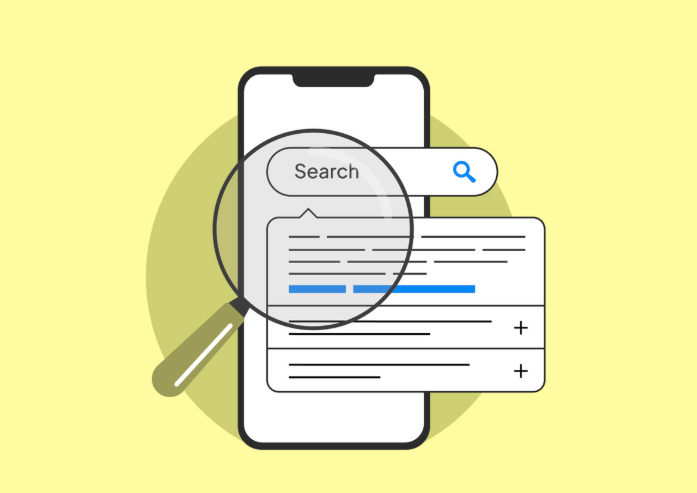If you want to see double-digit growth, contact The Diamond Group. As a HubSpot Agency Partner, we believe in the inbound methodology. We are a marketing group that offers supercharged website design and inbound marketing solutions that maximizes your businesses potential. Whether you need a custom web design, a full inbound marketing strategy, or just want double-digit growth, The Diamond Group has your back.
It's easy to get SEO and SEM confused because their acronyms are almost identical, and they both involve harnessing the power of search engines. SEO is all about setting your website up for organic search engine success. SEM is SEO plus other paid tactics to get websites to the top of search engines.
Regardless of their similar names, SEM and SEO are different and require different strategies for success. When combined, both are valuable tools in the battle for website traffic. Learning the difference between SEO and SEM and how to implement both into your marketing strategy can help you get your website to the top of the SERPs.
What is SEO?
SEO is an acronym for Search Engine Optimization. It is a component of a much larger category called SEM, or Search Engine Marketing. The process known as SEO is used to organically increase the number of visitors to your website by making sure your website pages rank high on search engine results pages.
There are many different SEO tactics. Some are good and they are called white-hat, and some are bad and they are called black-hat. The industry is constantly evolving and some current black-hat SEO tactics used to be white-hat. So it's worth it to stay up to date on the differences or to partner with a marketing agency that is keeping up.
There are two types of SEO: On-Page and Off-Page
On-page SEO includes things like making sure your website pages have optimized meta descriptions, page titles, headings, alt text, and image tags, etc.
On-page SEO also includes your content. Creating a blog, or adding video to your website are examples of inbound marketing. One of the best long-term investments in marketing you can make is in inbound marketing. Consistently creating relevant, interesting content for your ideal customers that is optimized for search engines can do wonders for your search engine results.
One of the biggest factors in off-page SEO is your backlink profile. Are other authoritative sites linking to your information? If this is happening, it's a good sign to the search engines that your content is valuable and should rank well.
What is SEM?
SEO is a component of the larger category SEM (search engine marketing). Search engine marketing increases a websites visibility through optimization and advertising. Search engine advertising is dominated by Google Ads, formerly known as Google Adwords, but there are other players as well. With Google Ads you are paying every time a visitor clicks on your ad and visits your website.
SEO vs SEM: What's the Difference?
SEM and SEO each add value to your marketing strategy in their own way. One of the biggest differences that is also easy to remember is SEO is done organically, while SEM encompasses paid marketing strategies.
.png?width=370&name=SEO%20(4).png)
Why You Should Add SEM to Your Marketing Strategy
You may be thinking that since SEO can get your website ranking organically without the need for paid ads that you shouldn't bother with SEM. We would disagree. While SEO is a great way to organically grow your website visitors and increase the number of leads coming to you, SEM has its place in your marketing strategy.
For example, SEM can generate some quick sales wins, whereas your SEO strategy will take time to build momentum. If you're looking to boost your brand visibility for an event or for local SEO, SEM can have an impactful effect on your brand awareness.
SEM offers a solution to connect with leads that are in an advanced stage of their buyers journey. With PPC ads, you can link conversion-focused landing pages to your ads that will move your visitors through your sales funnel. This means that not only will you be able to increase the chance the qualified leads will find you, but that they'll be able to easily move from visitor to lead to customer because of the path you set for them.
Tips for SEM/PPC Campaigns
- Do your keyword research - You won't know what keywords to use for your PPC campaigns without first doing some research. Keyword research gives you insight as to what people are searching for, how much other advertisers are paying per click, and how competitive that keyword is. Without keyword research, you're taking a risk by spending advertising dollars on campaigns with little to no strategy, which could cost you in the long run.
- Listen to your quality score and adapt your campaign - Google Ads has what's called a quality score, which is how the platform ranks your keywords and PPC ads in terms of quality and relevance. Adapting your campaigns for a better quality score will increase the performance of your campaigns, so pay attention!
- Make sure that you take advantage of site link/call extensions - With PPC ads, you can add site links and call extensions to your ad to help guide your visitor to the content they're looking for. Don't miss out on these CTA opportunities.
- When in doubt, hire out - If you're unsure of how to bring in the most ROI on your PPC campaigns, call in an expert to run your campaigns. The last thing you want is to waste precious budget spend on ads that don't work.
Who Wins in The Battle for Traffic?
Marketers love to debate this topic, but the truth is that true SEM does not succeed without the benefit of organic SEO.
There are many situations where PPC (a component in SEM) makes more sense than SEO to implement. For example if you have a new website and you want immediate exposure, you are going to need to create a paid search campaign because it works faster than SEO. It also would be unwise to simply focus on PPC and ignore SEO.
In the battle for traffic, organic SEO takes longer to show results but in the end is less costly and you will establish credibility for your brand that is not possible with PPC alone.
About The Diamond Group
The Diamond Group is a Wilmington, NC based digital marketing and web design agency committed to helping today's small businesses grow and prosper. With a 28-year track record of success, their proprietary in-house system and concierge-level multi-disciplinary team approach to marketing guarantees double-digital growth and optimizes marketing ROI.
Related Posts

Waiting On SEO Results? Here’s What You Can Actually Control
